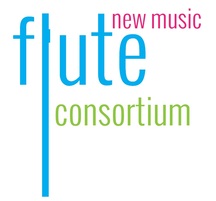Get to Know...Andrew Davis  It’s been such a pleasure to learn more about the background and inspiration of the FNMC Composition Contest finalist composers. This week, we’re pleased to share our Q&A with Andrew Davis, composer of What’s Next for flute, bassoon and piano. Q&A with Andrew What about new music for the flute appeals to you? The flute is one of the most, if not the most, versatile instruments. There are so many possibilities. Personally, I’m amazed at the range of character the instrument possesses. I think most people often think of the flute as a bright and brilliant instrument, which it certainly is; however, the low register of the flute is capable of haunting beauty. There’s a piece by this Danish composer, Hans Abrahamsen, called Winternacht that features an alto flute in its lowest register. It’s incredibly evocative. As composers, we are always searching for new modes of expression and the flute with its endless possibilities is a perfect conduit to that end. Who are your favorite new music composers? Composers listen to as much “new music” as anyone so it’s difficult to single out just a few. David Lang was a big inspiration to me when I was in college. I grew up listening to rock and jazz and his music offered particular elements of those genres in combination with a modern classical approach. It was a good foray into the world of “new music,” something I had not listened to until that point. Currently I have been listening to an Italian composer named Fausto Romitelli, who similarly explores elements of rock but in a much different way. So I guess you could say that I tend to be attracted to composers who are inspired by the music I grew up hearing. Describe your musical background and activities I grew up playing trombone in my local school bands and guitar in several rock bands and jazz combos. In the latter half of high school, I became more interested in improvisation on guitar. I was trying to learn to create my own guitar solos in the vein of Van Halen and Jimmy Page. Improvisation is a form of composition, so it did not take long before I started writing my own songs on paper. In college, I took an introductory composition class with this fantastic professor, Kathryn Alexander, and from then I was hooked. Currently, I am pursuing my doctorate at the University of Pennsylvania in composition. Most of the music I am composing now tends to be for chamber groups, though recently I have become interested in electroacoustic music. More About Andrew… Andrew Davis is a composer, pianist, and electric guitarist in Philadelphia, PA who has written for a variety of media both acoustic and electroacoustic. Davis’ early experiences in music were in local concert bands where he played trombone and in rock bands where he played electric guitar. Fused with a strong background in popular music, his music seeks to explore a variety of different genres and musical aesthetics. His works have been performed by groups such as the JACK Quartet, PRISM Quartet, Alarm Will Sound, Daedalus Quartet, the Argento Ensemble, counter)induction, the Boston New Music Initiative, the University of Texas Wind Ensemble, the Yale Concert Band, the Florida State Wind Ensemble, and the University of Texas New Music Ensemble. He has received honors from ASCAP, BMI, the Mizzou New Music International Composers Festival, Vox Novus, The Lyra Society, and ISCM-Texas among others. Additionally, his music has been heard at a variety of festivals including the Festival of New Music at FSU, the Manchester New Music Mini-Festival, New Music on the Point, and SEAMUS. He earned a B.A. in music from Yale University graduating with honors and distinction in the major in 2009 as well as a M.M. in composition from the University of Texas at Austin in 2012. Currently, he is pursuing his doctorate in composition at the University of Pennsylvania as a Benjamin Franklin Fellow. Visit his website for more information: www.andrewdaviscomposer.com If you like What’s Next? Check out these other works for flute… Hummingbirds Instrumentation: flute, clarinet, violin, cello, and piano Year: 2015 Duration: 8 minutes Sextet Instrumentation: flute, clarinet, oboe, violin, viola, cello Year: 2009 Duration: 7 minutes Sing Sweetly, Run Swiftly Instrumentation: flute, violin, viola, cello, harp Year: 2015 Duration: 10 minutes
1 Comment
|
AuthorThe Flute New Music Consortium is an organization dedicated to the creation and support of new music for the flute. Archives
June 2019
Categories
All
|

 RSS Feed
RSS Feed
